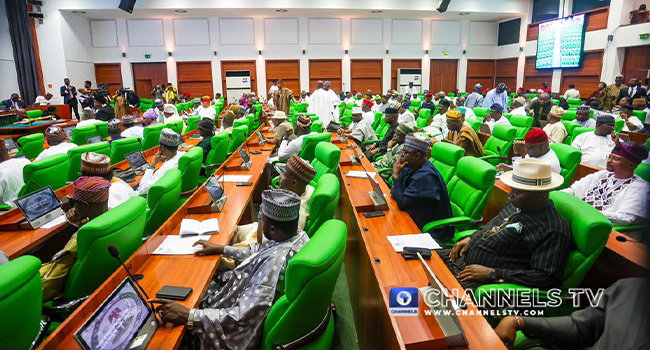
The House of Representatives passed the Nigeria Audit Service Bill, thereby repealing the Audit Ordinance of 1956 established along with it Federal Audit Board.
According to the NewTelegraph, the approved bill also provides additional powers and functions to the Auditor-General of the Federation.
The bill is titled “An act to repeal the Audit Ordinance of 1956, and enact the Federal Audit Service Act, 2023 to establish the Federal Audit Service, provide additional powers and functions of the Audito-General for the Federation, establish the Federal Audit Board; and for related matters”.
While presenting the bill for deliberation, House leader, Hon. Julius Ihonvbere said the bill was part of efforts to erase colonial inheritance and make it in compliance with relevant sections of the constitution of the Federal Republic of Nigeria.
According to Ihonvbere, who re-presented the bill which was rolled over from the 9th Assembly, the need to effect the changes has become expedient to give the board the independence, and impartiality and create an enabling environment needed for it to effectively discharge its statutory responsibilities.
Nigeria before now, was the only country in Africa out of the 54 countries without audit law.
Supporting the bill, Hon. Bamidele Salam enjoined his colleagues to note that the bill underwent all the legislative processes but only suffered non-assent to it by the president that it was caught up with want of time emphasizing that all the stakeholders have harmonized their positions on it.
The service is to operate as a Board and not a Commission.
Section 4 (a) in the new law provides that a chairman of the Board shall have at least 15 years cognate in accounting and auditing either in the public or private practice.
Under Section 4 (2) of the law, “The Auditor-General for the Federation shall be the chief executive officer; six members representing each of the geo-political zones; representative from the Head of Service of the Federation, Federal Civil Service Commission not below the rank of a Director; two persons who retired from the Service; one person to represent the Institute of the Chartered Accountants of Nigeria as well as one person to represent the Association of National Accountants of Nigeria while the Legal Adviser of the Service shall be the Secretary”
Section 6 (a) proposed that the members of the board serve for a term of four years and may be re-appointed for another term of four years and no more was upheld.
In section 22, the years of the occupant of such office were stated to remain in consonance with what obtains in the Civil Service Rule in which the retirement age is put at 60 years and 35 years of service depending on which comes earlier.
It could be noted that the Public Accounts Committee (PAC) scrutinizes and reviews the annual report sent to it by the Auditor-General of the Federation and can invite the affected Ministries, Departments or Agency (MDA) or any person so connected to the same to appear before it.
The findings of the Committee are also considered at plenary and where necessary, forwarded to the President for proper implementation of resolutions on the report.






